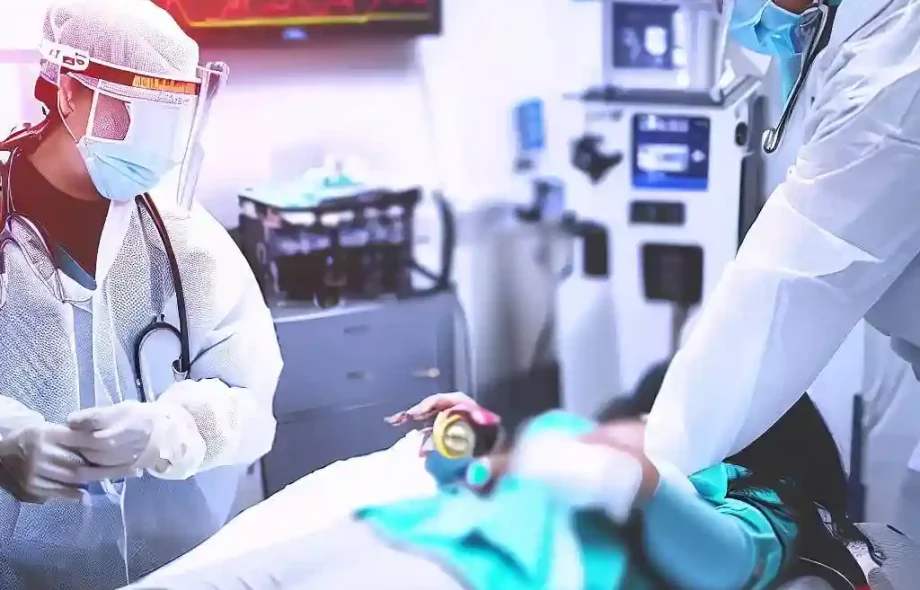Many people walk out of their MRI scans feeling more exhausted than expected. You might assume it’s just sitting still, but there’s more behind the fatigue. In this article, we’ll explore why you might feel tired after MRI, what’s normal, when to worry, and how to recover quickly. Whether it’s your first scan or you’re a regular patient, understanding this tiredness can ease your concerns and help you prepare better next time.
Table of Contents
What is an MRI?
Why Do You Feel Tired After an MRI?
7 Common Reasons for MRI-Related Fatigue
When is Tiredness After MRI a Concern?
Tips to Feel Better After an MRI
FAQs About MRI and Fatigue
Conclusion
Meta & SEO Elements
What is an MRI?
MRI stands for Magnetic Resonance Imaging. It’s a non-invasive test that uses powerful magnets and radio waves to create detailed images of your internal organs, soft tissues, bones, and more. MRI machines are loud, and the process requires you to lie very still in a confined space, which can be stressful for some.
Why Do You Feel Tired After an MRI?
Feeling tired after an MRI isn’t unusual. Even though you aren’t doing anything physically demanding during the scan, your body and mind are still working hard. Stress, anxiety, sensory overload, and even fasting (if required before the scan) can contribute to post-MRI exhaustion.
7 Common Reasons for MRI-Related Fatigue
1. Mental Stress and Anxiety
Even if you don’t have full-blown claustrophobia, being enclosed in a narrow tube with loud banging sounds can make you anxious. The mental energy spent trying to stay calm and still can be draining.
The stress of an MRI can be as tiring as physical activity.
A patient lying still in an MRI machine showing signs of stress.
2. Sensory Overload
MRI machines make loud knocking or thumping noises that can be overwhelming, even with earplugs or headphones. This sensory input can overstimulate your brain, making you feel worn out.
3. Prolonged Stillness
Lying still for 30–60 minutes isn’t easy. Your body may tense up to avoid moving, which can lead to muscle stiffness and post-scan fatigue.
4. Use of Contrast Dye (Gadolinium)
Some MRI scans require a contrast agent injected into your vein. While generally safe, the body still processes this foreign substance, and some people feel fatigued as a side effect.
5. Fasting Before the Scan
Certain MRIs require you to avoid eating or drinking for hours beforehand. Low blood sugar can make you feel dizzy, weak, or tired afterward.
6. Dehydration
MRI facilities are often cold, and the environment can be drying. If you haven’t had water in hours due to fasting or prep, dehydration might be the culprit behind your fatigue.
7. Pre-Existing Health Conditions
If you’re getting an MRI for a condition that already causes fatigue (like chronic illness, infections, or neurological issues), the procedure may simply highlight your existing exhaustion.
When is Tiredness After MRI a Concern?
While mild fatigue is common, you should seek medical advice if you experience:
FAQs About MRI and Fatigue
Q1: Is it normal to feel exhausted after an MRI?
Yes, especially if it involved contrast dye, long durations, or stress. It’s your body’s way of reacting to a mentally and physically taxing experience.
Q2: How long does fatigue last after an MRI?
For most people, fatigue fades within a few hours. If it lasts longer than 24 hours, consult a healthcare provider.
Q3: Can the MRI scan itself cause tiredness?
Not directly. The scan uses magnets and radio waves, which don’t drain energy, but the experience surrounding it can make you tired.
Q4: Does contrast dye make you tired?
Yes, in some cases. Mild fatigue, nausea, or headaches are possible but usually short-lived.
Q5: Should I drive after an MRI?
If you feel alert, it’s generally safe. But if you had a sedative or feel unusually tired, arrange for someone to drive you.
Conclusion
Feeling tired after MRI is common and usually nothing to worry about. It’s your body’s reaction to stress, stillness, sensory overload, or minor medication effects. Most people feel back to normal after a few hours of rest, hydration, and nourishment.
If your symptoms linger or feel severe, the expert team at ER OF MESQUITE is ready to help you. We provide fast, compassionate care for post-procedure concerns and much more.


 :
: